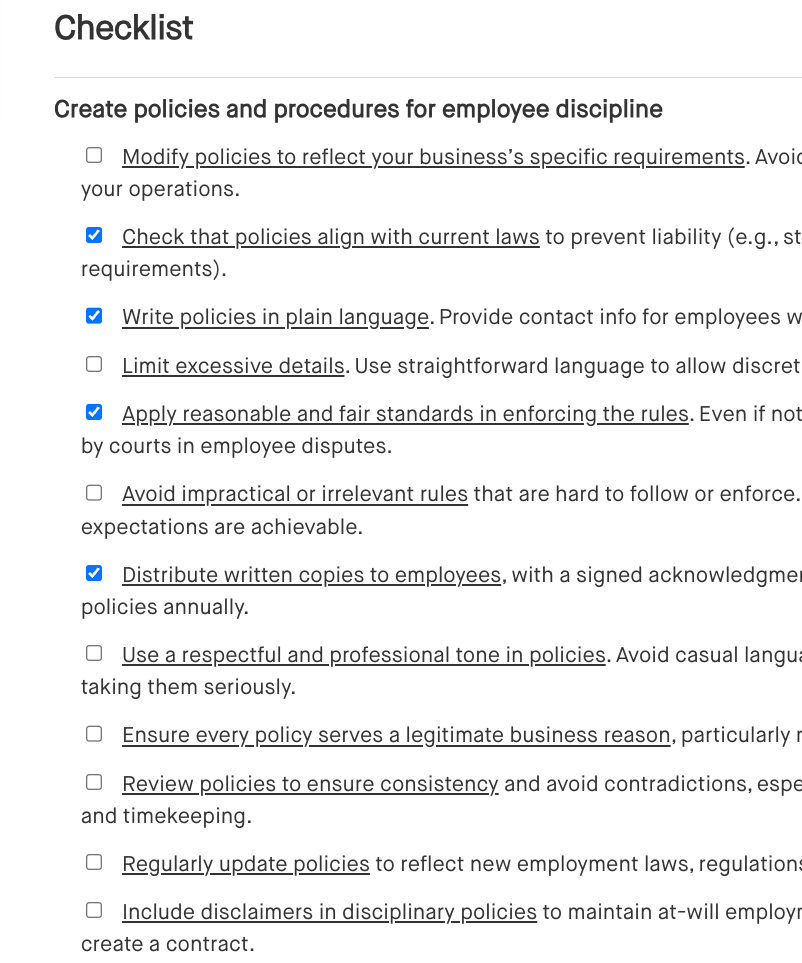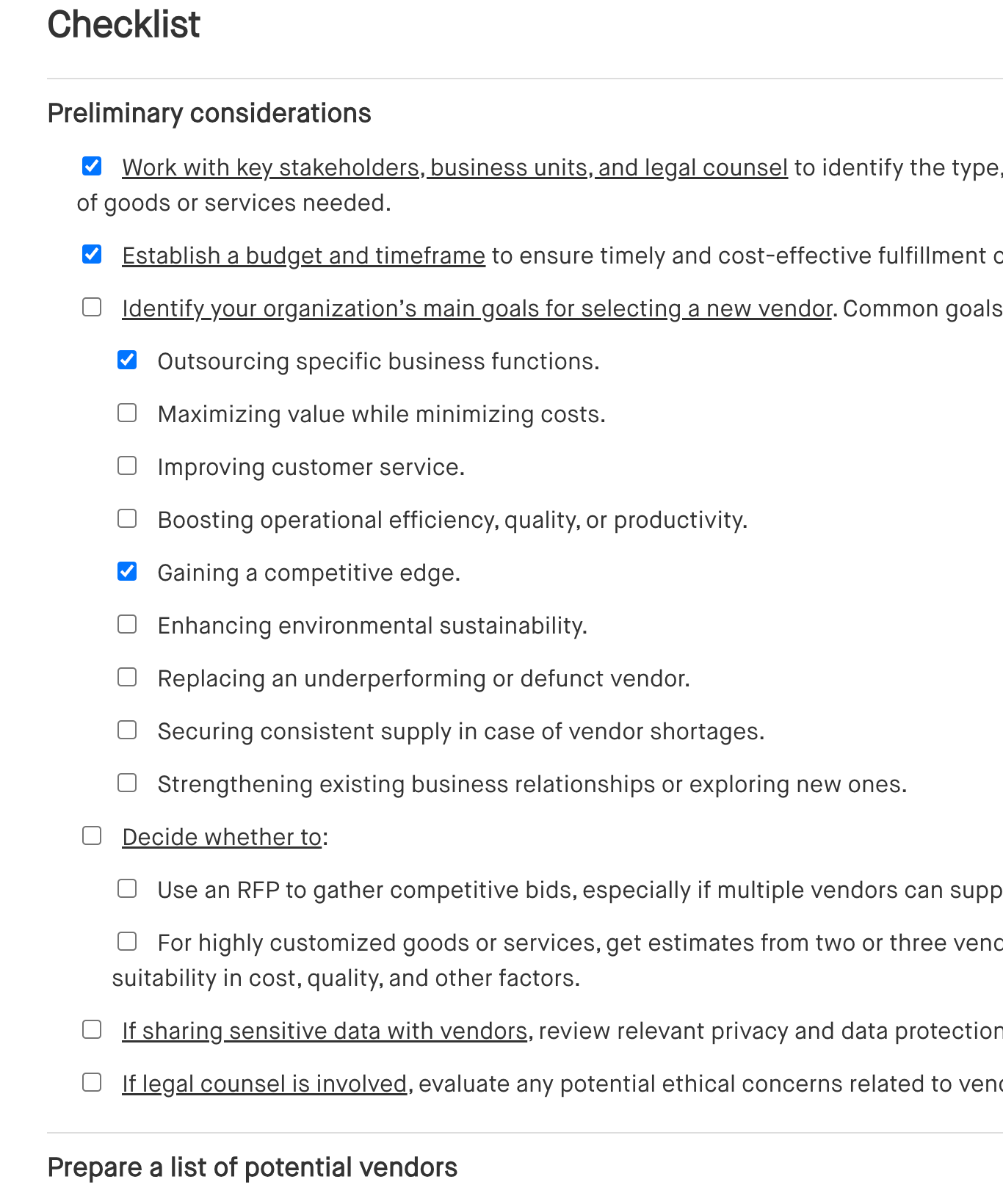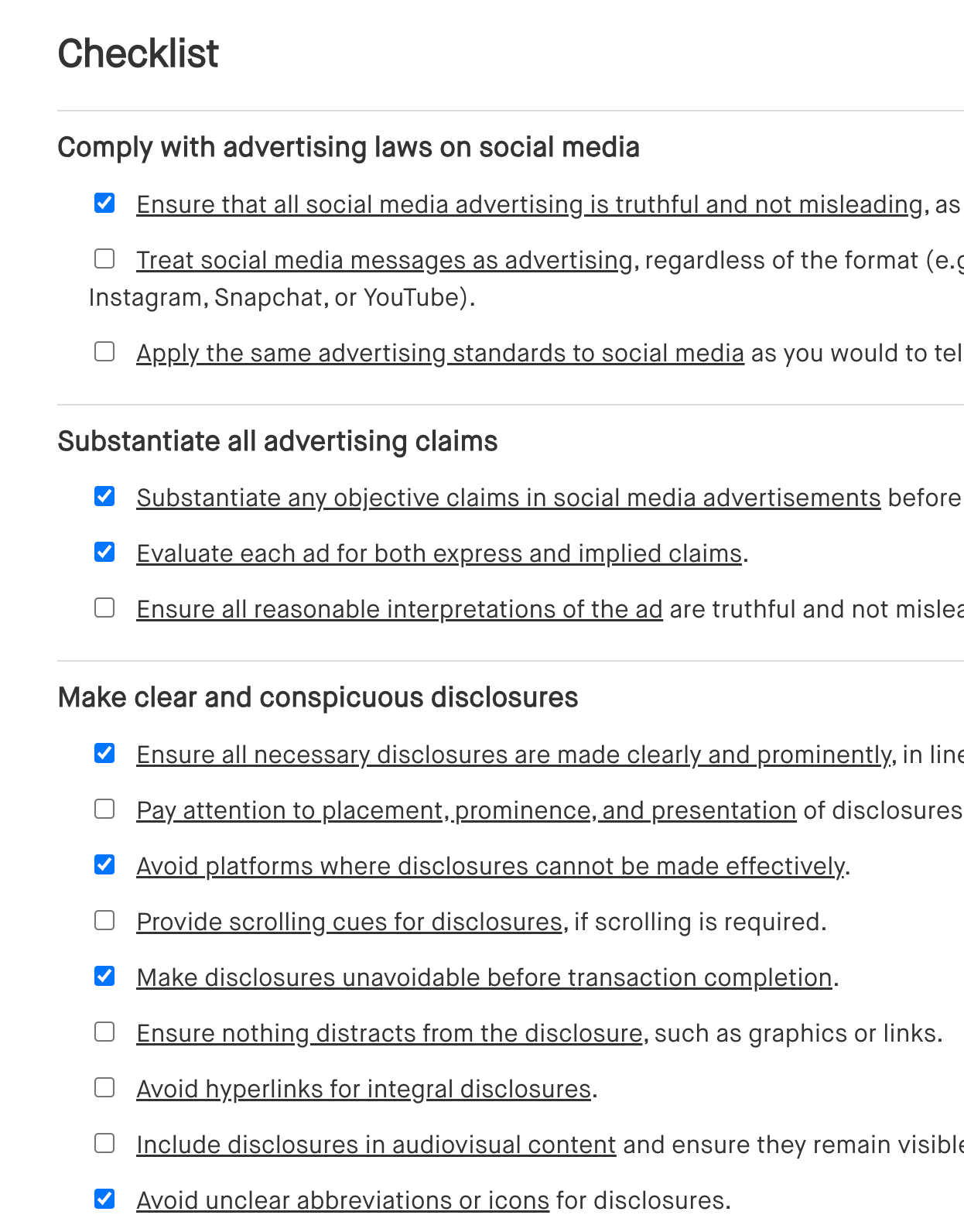Legal due diligence for lenders: Free checklist
Legal due diligence for lenders checklist
This checklist covers the key steps a lender should take when performing legal due diligence for a financing transaction. From organizing the due diligence process to reviewing key documents and assessing regulatory compliance, these steps help lenders make informed lending decisions and minimize potential risks.
Using this checklist ensures you conduct a comprehensive review, addressing critical issues that could affect the borrower’s ability to meet their obligations and maintain compliance with legal and regulatory requirements.
How to use this legal due diligence for lenders checklist
Follow these steps to maximize the effectiveness of your due diligence process:
- Work through each section in order: Start by defining the structure and scope of your due diligence, then proceed through document requests, reviews, and any necessary follow-up actions.
- Engage relevant stakeholders: Collaborate with legal, compliance, and finance teams to ensure all aspects are thoroughly reviewed, from borrower obligations to regulatory compliance.
- Keep detailed records: Document each step, from the initial document requests to the final findings. Clear records are essential for transparency and any future audits.
- Adapt to your needs: Customize this checklist to fit the unique aspects of your transaction. For instance, high-risk or complex transactions may require additional steps or specialist input.
- Regularly update procedures: As regulations and best practices evolve, review and adjust your checklist to reflect current standards, ensuring ongoing compliance and thorough due diligence.
Checklist
Benefits of using a legal due diligence checklist for lenders
Using a legal due diligence checklist offers significant advantages for lenders during the financing process. Here’s how:
- Minimizes risk: By following a structured checklist, lenders reduce the chances of overlooking critical issues, protecting against unexpected liabilities, compliance issues, or borrower defaults.
- Ensures thorough review: The checklist ensures each essential document and aspect of due diligence is covered, leaving no key area unaddressed.
- Promotes consistency: Using a checklist creates a standardized approach to due diligence across all transactions, helping maintain quality and efficiency regardless of transaction size or complexity.
- Improves decision-making: A comprehensive review of the borrower’s obligations, liabilities, and compliance history helps lenders make more informed, confident lending decisions.
- Simplifies audits and record-keeping: With documented steps and organized records, the checklist simplifies any audits or reviews, providing clear, organized information if issues arise in the future.
Frequently asked questions (FAQs)
Q: Why is a legal due diligence checklist important for lenders?
A: A checklist provides a clear roadmap for evaluating a borrower’s legal and compliance standing, helping lenders identify and address potential risks that could affect the loan’s security and repayment.
Q: Who should use this checklist?
A: This checklist is ideal for legal, compliance, and finance teams involved in assessing the borrower’s obligations, regulatory compliance, and risk factors related to a financing transaction.
Q: How often should the checklist be reviewed or updated?
A: The checklist should be reviewed at least annually or whenever there are significant changes in regulations, lending standards, or industry practices to ensure it remains effective and relevant.
Q: What areas does this checklist cover?
A: This checklist covers all critical areas of legal due diligence, including document reviews, regulatory compliance checks, organizational structure, financial obligations, and material contracts.
Q: Can this checklist replace professional judgment?
A: While the checklist ensures thorough coverage, it should complement—not replace—professional judgment and any necessary consultation with specialists, especially for complex transactions.
Q: What if an issue arises during the due diligence process?
A: Any identified issue should be documented and evaluated. Depending on the severity, consider seeking additional legal or regulatory expertise to understand its impact and determine the best course of action.
This article contains general legal information and does not contain legal advice. Cobrief is not a law firm or a substitute for an attorney or law firm. The law is complex and changes often. For legal advice, please ask a lawyer.


